Mutual Funds
Mutual funds
At RBL Bank, we offer our customers a seamless investment experience. INVEST FIRST++, our platform for investments, allows you to invest in mutual funds through RBL Bank’s Internet Banking and RBL MoBank (mobile banking).
Calculate how your mutual fund investment could look like in years to come.

Let's Define Mutual Funds

It’s a pool of money contributed by large number of investors with similar goals & objectives

Managed by professional managers and regulated by SEBI

Invest in stocks, bonds, money market instruments and other assets

Products that offer both regular income and long term capital appreciation
Invest in Few Minutes
INVEST FIRST++, our online platform for investments allows you to make investments in quick and convenient manner than ever before. Mutual funds can be bought, sold or switched online through the platform. The easy-to-navigate platform is available on RBL Bank’s Internet Banking and facilitates investors to invest in mutual funds within minutes.
Let Experts Handle Your Money
Have you always been tempted to invest in stock market? But lack of knowledge, fear of losses and inability to track the market prevented you from investing? That’s exactly where mutual funds help you! The funds are managed professionally by experienced managers who constantly monitor and track the markets and take investment decision on your behalf. Active management in terms of both security selection and asset allocation decision are the key reason for these funds to deliver relatively better performance over medium to long term.

Choose Your Fund
The statement “The choice is yours” indeed holds true. Mutual funds offer the investor the advantage of investing in funds based on their risk appetite, market capitalisation, nature of gains - regular income or long term capital appreciation etc.
Start With As Low As INR 500
Mutual funds are as affordable as watching a movie. Incredible, isn’t it? Contrary to the popular beliefs, one can invest in mutual funds with as low amount of INR 500 to start via regular investing option (SIP) or INR 5,000 (lumpsum).
Need Urgent Cash? Just Get It
Mutual Funds invest a small proportion in liquid investments which allows them to meet any liquidity requirements of yours with relative ease. Mutual Funds exempt you from exit load on completion of a certain period in general; as a result you can get the same returns that you have generated from your investment at the time of exiting.
Equity
Resources of these funds are invested in the stocks / shares of different companies. Investors with a high risk appetite, who seek capital appreciation over long term, can prefer this type of fund. These funds are aggressive and usually seek to generate higher returns albeit by taking higher risk compared to various other market instruments.
Further, SEBI has directed the classification of equity funds basis the following parameters:
Market Cap Based
One parameter is market capitalisation of the companies the fund invests in. Large Cap Fund will invest predominantly in top 100 companies by market capitalization. Mid Cap Fund will predominantly invest in next 150 companies by market capitalisation. Similarly, other categories include Small Cap Fund, Multi Cap Fund and Large & Mid Cap Fund.

Investment Strategy Based
Another parameter of fund categorisation is investment strategy the fund follows. Focused Fund invests in limited number of stocks and keep the fund portfolio concentrated. Another type is Value Fund which invests in shares of fundamentally strong companies that are currently under-valued in the market with the expectation of benefiting from an increase in price as the market recognizes the true value.
Sector/Thematic
Sector Funds invest in a particular sector like banking, pharmacy, FMCG. Whereas Thematic Fund invests in particular theme, like infrastructure. Here investments are more broad-based than a sector fund and hence risk is diversified.
Debt
These funds invest in different debt instruments available in market like Treasury Bills, Government securities, corporate bonds, and other debt securities with different maturities. Their investment philosophy seeks to generate a fixed income regularly with low risk. It is ideal for investors who are seeking secure instruments with hope to earn higher returns than bank term deposits.
Debt funds are categorized basis two parameters as follows -
Duration Based
Debt schemes like Liquid Fund, Ultra Short Duration Fund, Low Duration Fund, Medium to Long Duration Fund etc. are classified basis the tenure of securities they invest in. For example- A Long Duration Fund will invest in debt and money market instruments with Macaulay duration of the portfolio is greater than 7 year.
Instrument Based
These funds are classified basis the type of instrument their portfolio is concentrated in. A Corporate Fund invests minimum 80% of its assets in corporate bonds. Similarly, Gilt Fund invests at least 80% of its assets in government securities (across maturity), Banking and PSU Fund will invest in debt instruments of banks, public sector undertakings, public financial institutions. Other such funds include Credit Risk Fund, Floater Fund.
Hybrid
Hybrid Funds invest in different types of asset classes. Such funds typically comprise a combination of equities, debt securities and gold (in some cases) in different proportions. They offer inherent diversification benefit, thereby mitigating the risks involved. These funds are preferred by investors who desire for combination of fixed income and long term capital appreciation.
Hybrid schemes include -
Conservative Hybrid Funds, Balanced Hybrid Funds, Aggressive Hybrid Funds
These differ from each other in terms of the ratio of their investment in equity and debt instruments. Among the three, exposure to equity instrument in Conservative Hybrid Fund is lowest and debt is highest. Whereas, the aggressive fund invests 65%-80% of its assets in equity. Balanced Hybrid Fund keeps the balance between the equity and debt investments by investing 40%-60% of assets in each.
Dynamic Asset Allocation
Here the exposure to particular asset class is frequently adjusted basis its performance in the changing market conditions. Worst performing positions are reduced and better performing are added.
Multi Asset Allocation
These are open ended schemes which invests in at least 3 asset classes with a minimum contribution of 10% of its asset in each. Investments in multiple asset classes makes it a safer bet.
Arbitrage Fund
These funds tap the arbitrage opportunity arising out of different prices of same security in different markets; buying at lower price from one market and selling at higher price in other. Minimum investment in equity & equity related instruments is 65% of total assets.
Equity Savings Fund
These funds invest a two-third of their asset in equity (of which a third is in arbitrage) and the remaining one-third in fixed income. These qualify as equity funds for their tax profile as their equity exposure is more than 65% but are low-risk funds similar to that of fixed income funds.
Solution Oriented
Schemes that focus on particular life goals fall under this category. The investments under this type of schemes are generally long term as they are close-ended with lock-in period, which allows investor to maintain discipline in investing and plan for their long term goals.
Retirement Fund
This fund comes with lock-in of 5 year or till the age of retirement age, whichever is earlier. The scheme focuses on building wealth to ensure comfortable life after retirement of the investor.
Children’s Fund
This fund comes with lock-in of at least 5 years or till the child attains age of majority, whichever is earlier. The aim of such funds is to create wealth to meet major expenses which occur when children attain majority. Example- education, marriage etc.
Others
Exchange traded funds (ETF)
ETF is open-ended fund which is traded in stock exchanges. These funds mainly track an index, a commodity, or a pool of assets and experience price changes throughout the day as they are bought and sold on the stock exchange they are listed in.
Fund of Funds (FOF)
This type of fund invests in other mutual funds rather than directly investing in stocks, bonds and other securities. In this way, FOF diversifies the asset allocation in a variety of fund categories, allowing a good exposure without very high risk. The investment is done in funds of same fund house.

















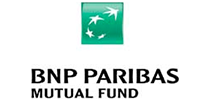








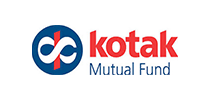

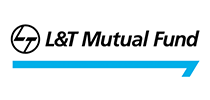
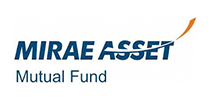



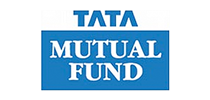













 Personal Banking
Personal Banking  Corporate Banking
Corporate Banking  Prepaid Cards
Prepaid Cards  Credit Cards
Credit Cards Debit Cards
Debit Cards